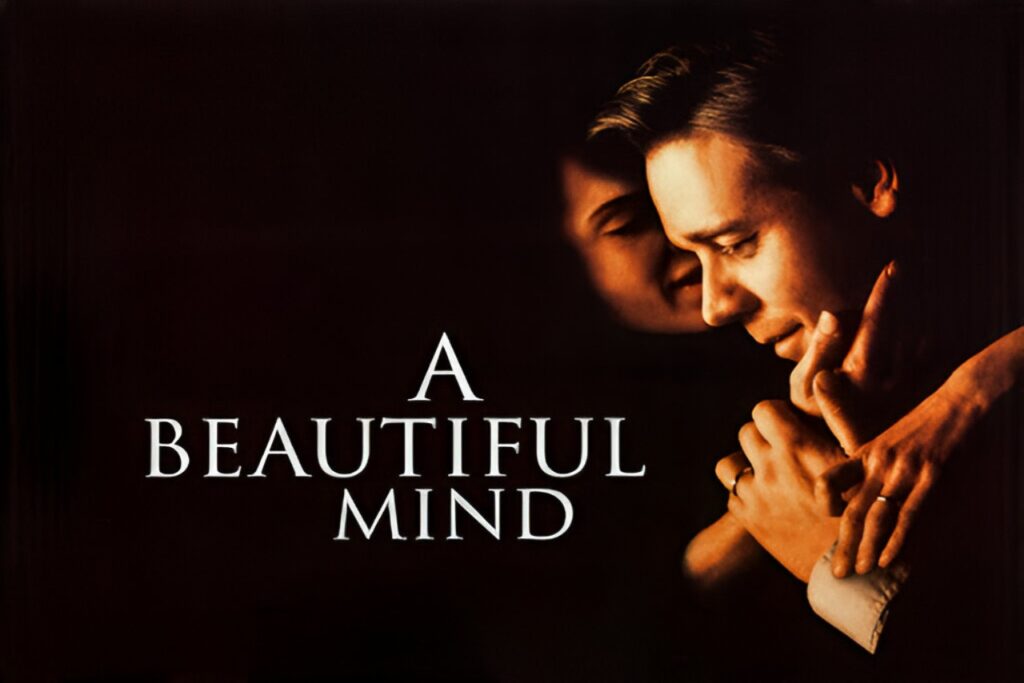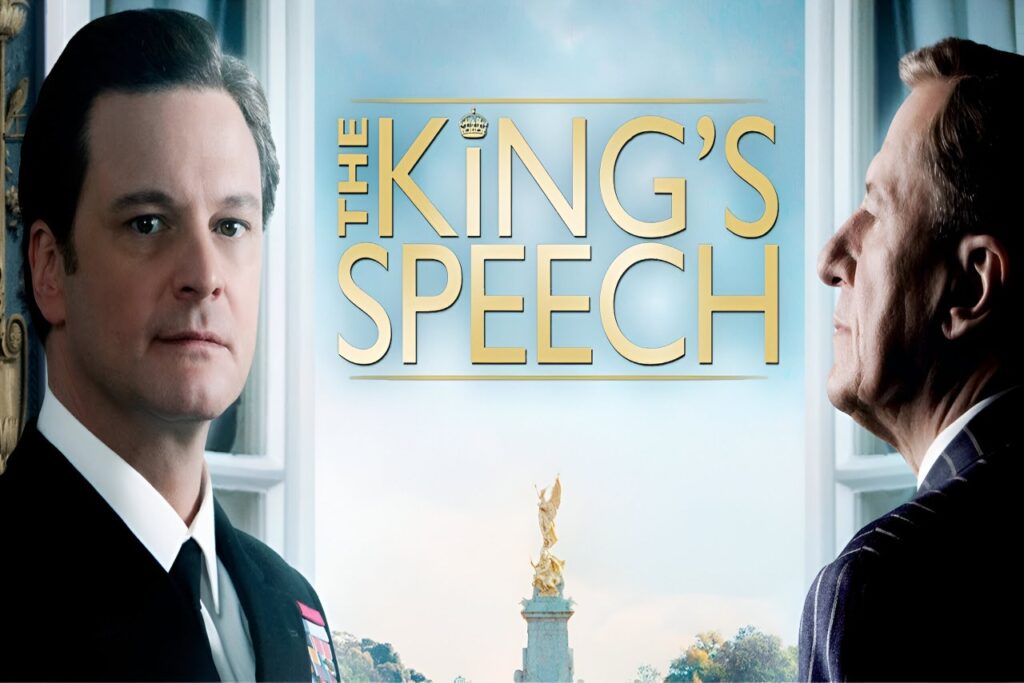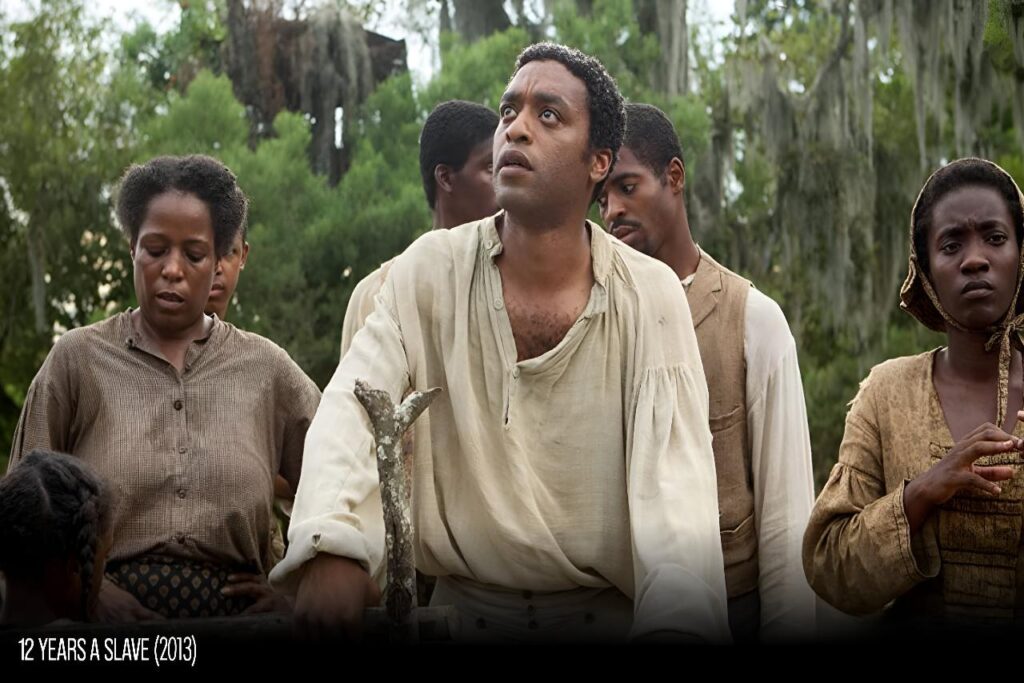Biopic movies present the public with a unique chance to connect with the lives of great people from the perspective of the medium of the movie. Biopics have a twofold function; they amuse and also teach, motivate, and give insight into historical figures who have influenced the world we live in. The best biopics strike a balance between factual accuracy of detail and engaging storytelling, giving emotional identification between the public and the subject. From war heroes to intellectual giants, the following five movies are the best biographical films, worth viewing for their critical success, box-office reception, cultural impact, and awards received.
Oppenheimer (2023)

Christopher Nolan’s biopic of J. Robert Oppenheimer, the theoretical physicist who directed the construction of the atomic bomb, is a landmark of biographical filmmaking. The biopic is the biggest box-office hit biopic to date, with $912 million at the international box office. Such box-office and critical success is proof of the power of storytelling from a person’s life reaching a global audience if handled with artistic maturity and respect for the past. Oppenheimer grapples with the intricacies of scientific theory and ethics, but in a way that makes sense through great storytelling and pictorial narrative.
The screen rendering of the protagonist’s stellar intellect and embattled moral sense provides the audience with a multidimensional portrait of a man whose work irrevocably changed human history. Far from reducing Oppenheimer to a hero-villain, however, Nolan provides a multidimensional character who is struggling with the long-term implications of his scientific breakthroughs. Such a multidimensional handling raises the film above the usual biopic fare and offers it as an interesting exploration of the intersection of human greatness and moral choice.
Oppenheimer is the perfect illustration of how modern biopics can treat historical figures in such a way that one learns about both their accomplishments as well as inner turmoil.
Schindler’s List (1993)

Steven Spielberg’s gripping film is the real-life story of Oskar Schindler, a German businessman who saved more than a thousand mostly Polish-Jewish citizens of the Holocaust by hiring them to work in his factories. Shot mostly in black and white, the film captures a near-documentary-like quality that serves to enhance its historical authenticity as well as preserve its strong emotional impact. Schindler’s List is one of the most moving examinations of human courage during one of the darkest times in history, showing how the moral awakening of one individual can make a significant impact against widespread evil.
The film traces Schindler’s dramatic evolution from self-absorbed businessman to humanitarian figure, with both psychological nuance and respect for historical fact. What started as a money-making venture becomes more and more an impassioned effort to save as many lives as he can, ending in the iconic scene where Schindler bemoans his perceived inaction. This depiction resists hagiographic tendencies by recognizing Schindler’s vulnerabilities and early moral nuance, thereby providing a more realistic and even-handed biographical treatment.
The impact of the film spreads far beyond the confines of cinema, spilling into educational curricula around the globe, demonstrating how biographical films can function as irreplaceable historical documents safeguarding vital stories for the ages.
A Beautiful Mind (2001)

Ron Howard’s biographical drama of Nobel Prize winner John Nash gives a compelling story of intellectual brilliance and mental illness. This four Academy Award-winning movie, including Best Picture, follows Nash’s mathematical brilliance as well as his agonized struggle with paranoid schizophrenia. Through understated performances and subtle storytelling by Russell Crowe, audiences develop a greater appreciation for Nash’s groundbreaking work in game theory and the personal cost exacted because he struggled with mental illness.
At the emotional core of the film is its depiction of Nash’s marriage to his wife Alicia, played by Jennifer Connelly in her Oscar-nominated performance. The film depicts how her tireless support through electroconvulsive therapy and drug treatments stabilized Nash. A Beautiful Mind rises above the usual genius biopic in its depiction of Nash’s mathematical work and his internal struggle with his illness. In its balance of its depiction of these two subjects, the film humanizes a brilliant but disturbed man and makes it easier for audiences to accept that great intellectual ability frequently exists with severe personal issues.
The film’s sensitive depiction of mental illness helped to de-stigmatize and raise public consciousness of schizophrenia and, as such, is an excellent example of the way that biographical film can become involved in social commentary.
The King’s Speech (2010)

This period drama follows a turning point in the life of King George VI, who must overcome a crippling speech defect with the assistance of an unorthodox speech therapist. The film was widely praised by critics and won several awards, including the Academy Awards for Best Picture, Best Director, Best Actor, and Best Original Screenplay. Colin Firth’s outstanding performance identifies the advantages of being royal as well as the individual suffering of a man forced into public life for which he is woefully unsuited.
The King’s Speech derives so much of its power from the fact that it focuses on one challenge, as opposed to attempting to capture an entire life. By focusing on George VI’s speech therapy and his ascension to the throne at the critical pre-World War II period, the film becomes emotionally more resonant than a more general biopic could ever possibly be. The king’s relationship with his therapist Lionel Logue provides a rich, dramatic context to examine themes of duty, friendship, and self-discovery.
This biographical approach enables us to observe how even the most privileged individuals in society have private battles that make them more human despite their extraordinary circumstances. The thoughtful combination of historical context and personal drama in the film is the reason biographical films continue to thrive and are so widely acclaimed.
Also Read…
12 Years a Slave (2013)

Steve McQueen’s unflinching film adaptation of Solomon Northup’s 1853 memoir, Twelve Years a Slave, brings to graphic reality the appalling true story of a free Black man kidnapped and held in bondage in pre-Civil War America. The film’s excellent supporting cast- Chiwetel Ejiofor, Michael Fassbender, and Lupita Nyong’o- takes visceral reality to this piece of history. 12 Years a Slave is biographical filmmaking at its best, making people confront historical facts that many would rather ignore.
The impact of the film lies in its refusal to dilute the brutal facts of history while, at the same time, acknowledging the strength of human dignity under the most humiliating circumstances. For Northup, viewers are shown both the psychological and physical suffering that comes with slavery—the loss of identity, the destruction of family ties, and the ever-present fear of violence. McQueen’s editorial choices prioritize authenticity over simplicity of consumption, thus offering a viewing experience that forces viewers to engage with American history with honesty.
This biographical re-telling makes historical narratives highly interactive emotional experiences that demonstrate the singular strength of cinema in recovering and preserving meaningful historical stories. The success of the film at the box office and its three Academy Award wins, including Best Picture, acknowledge both its cultural significance and artistic value.
Conclusion
These five exceptional biographical films demonstrate the broad scope of diversity and impact of the biopic genre across a range of periods and thematic explorations. From the box office and critical success of Oppenheimer to the deep historical resonance of Schindler’s List, from the rich psychological detail captured in A Beautiful Mind to the personal demons trapped in The King’s Speech, and from the historical reflection of 12 Years a Slave, these films demonstrate the singular power of film to capture real lives with depth and emotional complexity.
The long-term appeal of biopics lies in their singular blend of factual accuracy and artistic interpretation, allowing a person to engage with history on a human level through the lens of narrative. The finest biopics, as these five superb films demonstrate, walk a fine line between respect for historical fact and successful dramatic presentation.
They do not inflate their subjects into caricatures nor reduce them to the stereotype of a one-dimensional figure. Rather, they probe the rich complexities of great people confronting great circumstances to uncover both their achievements and their underlying frailties. These five films establish a standard of excellence in biographical filmmaking that continues to challenge filmmakers and audiences alike.
Writer : Pranjal Bapna

